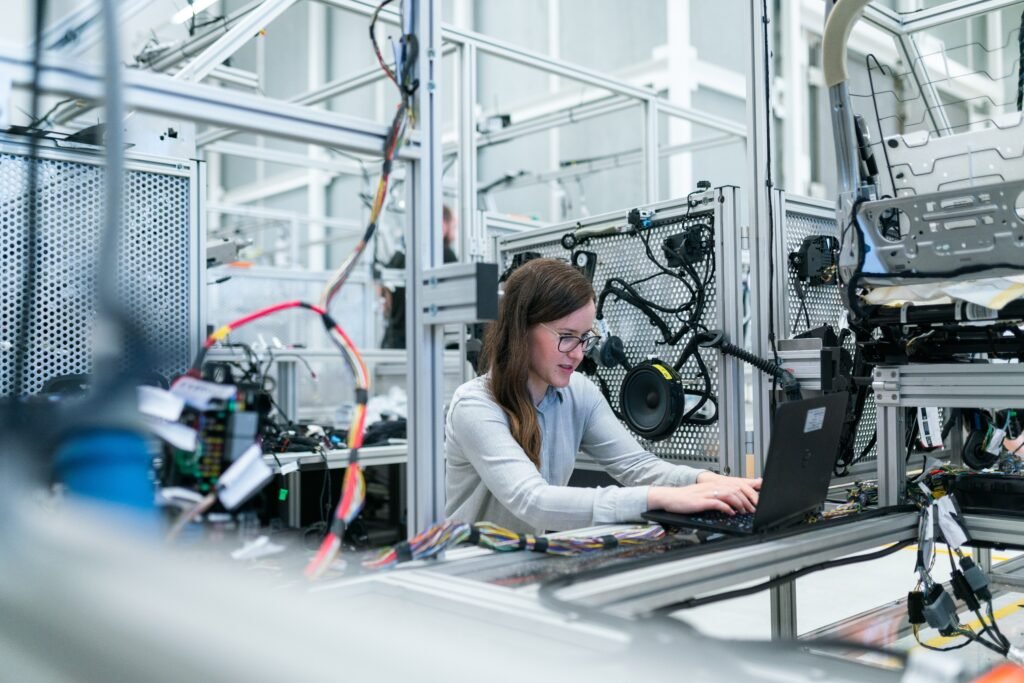Imagine a world where highly advanced robots coexist with humans, blurring the lines between what is real and what is artificial. In “A.I. Artificial Intelligence,” directed by Steven Spielberg, this captivating drama and sci-fi film explores the journey of a young robotic boy named David, brilliantly portrayed by Haley Joel Osment. Driven by a deep desire to be loved and accepted by his human mother, David embarks on an emotional quest to become “real.” With a story that combines the essence of classics like E.T. and 2001: A Space Odyssey, this thought-provoking film takes us on a mesmerizing adventure filled with technological wonders and the complexities of the human heart.
Plot Summary
Overview
A.I. Artificial Intelligence is a drama and science fiction film released in 2001. Directed by Steven Spielberg, the movie tells the story of a highly advanced robotic boy named David, portrayed by Haley Joel Osment. David longs to become “real” in order to regain the love of his human mother. The film explores themes of identity, love, and the boundaries between humans and artificial intelligence.
Main Characters
The main protagonist of the film is David, a robotic boy designed to resemble a human child. He is portrayed by Haley Joel Osment, who delivers a captivating performance, capturing the innocence and curiosity of a young boy while also conveying the complexities of a machine grappling with emotions.
Jude Law plays the character of Gigolo Joe, an android known as a “mecha” who becomes David’s companion during his journey. With his suave appearance, Law’s character provides a contrast to David, showcasing the various roles that robots play in this futuristic world.
Frances O’Connor portrays Monica Swinton, David’s human mother. Her conflicted emotions towards David drive the narrative of the film, as she struggles to accept David for who he is and grapples with the consequences of her decision.
Themes
A.I. Artificial Intelligence delves into several profound themes. One central theme is the quest for love and acceptance. Through David’s desire to become “real” and regain his mother’s love, the film explores the depths of human emotion and the lengths we go to seek validation and connection.
Identity is another prominent theme in the film. David, as an artificial being, questions his own existence and struggles with his desire to be recognized as human. This theme raises thought-provoking questions about the nature of humanity and the potential blurring of the lines between humans and machines.
The film also examines the ethical implications of creating advanced artificial intelligence. As the story unfolds, the audience is confronted with pressing moral dilemmas surrounding the treatment and rights of sentient machines, challenging us to reflect on our responsibility towards artificial life.

Production
Development
The idea for A.I. Artificial Intelligence originated from a screenplay called “Supertoys Last All Summer Long” by Brian Aldiss. Stanley Kubrick, a renowned filmmaker, had been interested in the project for over two decades before his death in 1999. Steven Spielberg, who had collaborated with Kubrick on other projects, took over the directorial duties and completed the film as a homage to his late friend.
Directors
Steven Spielberg served as the director of A.I. Artificial Intelligence, bringing his unique vision and storytelling abilities to the project. Known for his ability to captivate audiences with emotional narratives, Spielberg was the perfect choice to bring the complex story of David to life on the big screen.
Writers
The film’s screenplay was a collaborative effort between Brian Aldiss, Ian Watson, and Steven Spielberg himself. Brian Aldiss wrote the original short story, which served as the inspiration for the film. Ian Watson adapted the story into a screenplay, and Spielberg, known for his involvement in the writing process of his films, contributed to the final script, adding his own touch to the narrative.
Special Effects
A.I. Artificial Intelligence was praised for its groundbreaking special effects. Industrial Light & Magic, a renowned visual effects company co-founded by George Lucas, played a significant role in bringing the film’s futuristic world to life. The seamless integration of computer-generated imagery with live-action elements created a visually stunning experience that enhanced the storytelling and immersion for the audience.

Reception
Critical Response
Upon its release, A.I. Artificial Intelligence received mixed reviews from critics. The film’s unique blend of science fiction and drama divided audiences, with some praising it for its thought-provoking themes and emotional performances, while others found it overly sentimental or lacking cohesiveness.
However, the film was widely recognized and applauded for its extraordinary visual effects. The seamless blend of practical and digital effects earned praise for its ability to create a believable and immersive world.
Awards and Nominations
Despite the mixed critical response, A.I. Artificial Intelligence garnered recognition in various awards ceremonies. The film was nominated for two Academy Awards, including Best Original Score and Best Visual Effects. While it did not win any Oscars, it received a total of 17 awards and numerous nominations across different categories, highlighting its technical achievements in the industry.

Connections to Other Films
Stanley Kubrick’s Influence
A.I. Artificial Intelligence stands as a testament to the influence of Stanley Kubrick, one of cinema’s greatest visionaries. Kubrick’s involvement in the development of the project, albeit posthumously, left an indelible mark on the film. His signature style, characterized by meticulous attention to detail and exploration of philosophical themes, resonates throughout A.I. Artificial Intelligence.
References to E.T.
Steven Spielberg’s previous work, E.T. the Extra-Terrestrial, has a subtle presence in A.I. Artificial Intelligence. Both films explore the longing for connection and acceptance, with a young protagonist at their core. While A.I. Artificial Intelligence presents a darker and more complex narrative, the homage to Spielberg’s iconic film adds a layer of familiarity for audiences familiar with his body of work.
References to 2001: A Space Odyssey
A.I. Artificial Intelligence pays tribute to another legendary science fiction film, 2001: A Space Odyssey, directed by Stanley Kubrick. The exploration of artificial intelligence, existential questions, and humanity’s interaction with technology are themes that resonate in both films. Through its visual and thematic references to 2001, A.I. Artificial Intelligence creates a dialogue with Kubrick’s masterpiece, further enriching its own narrative.
In conclusion, A.I. Artificial Intelligence is a thought-provoking and visually captivating film that explores themes of love, identity, and the ethical implications of artificial intelligence. With Steven Spielberg at the helm and a talented cast, the movie presents a poignant story that honors the legacy of Stanley Kubrick while creating its own unique place in cinema history. Despite the mixed critical reception, the film’s groundbreaking special effects and the recognition it received in awards ceremonies demonstrate its significance and lasting impact in the sci-fi genre. The connections to Spielberg’s previous works and Kubrick’s influences further enrich the viewing experience, making A.I. Artificial Intelligence a must-watch for both fans of science fiction and those interested in the complexities of the human condition.




